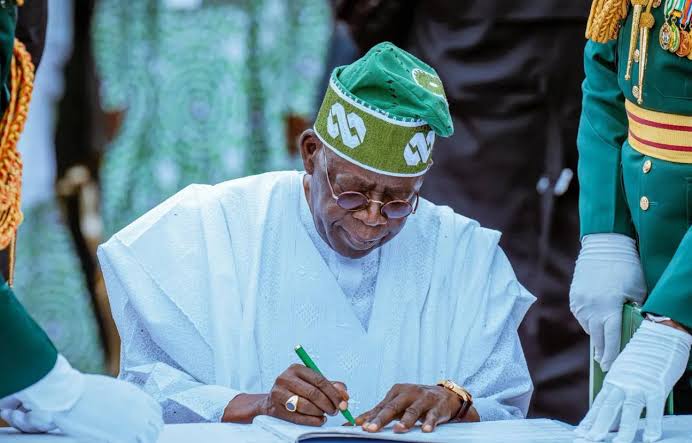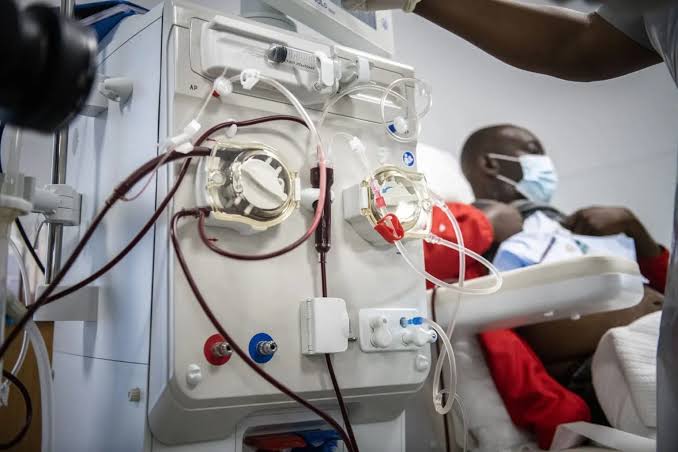
Daniel Otera
President Bola Tinubu has introduced a major subsidy for kidney dialysis in federal hospitals, reducing the cost of each session from ₦50,000 to ₦12,000 — a remarkable 76% reduction. This landmark policy, announced on Monday, 18 August 2025, by the Special Adviser to the President on Policy Communication, Daniel Bwala, is aimed at alleviating the financial strain on thousands of Nigerians battling kidney-related diseases.
As the country faces a growing kidney disease epidemic, this intervention is a crucial step toward improving healthcare access. However, experts caution that inadequate dialysis infrastructure may limit its full impact.
The policy, which has been described as a “landmark subsidy” by Bwala, has already been implemented in ten federal medical centers and teaching hospitals across Nigeria’s six geopolitical zones.
“President Bola Ahmed Tinubu has approved a landmark subsidy to reduce the cost of kidney dialysis for Nigerians. With this intervention, the price of each dialysis session has been lowered from ₦50,000 to just ₦12,000, bringing relief to thousands of citizens battling kidney diseases,” Bwala stated in a message shared on his X handle.
This initiative, which began at the Abubakar Tafawa Balewa University Teaching Hospital (ATBUTH) in Bauchi in January 2025, has already benefited 35 patients, according to Health Reporters.
The subsidy is now active in the following facilities:
Federal Medical Centre (FMC), Ebute-Metta, Lagos
Federal Medical Centre (FMC), Jabi, Abuja
University College Hospital (UCH), Ibadan
Federal Medical Centre (FMC), Owerri
University of Maiduguri Teaching Hospital (UMTH), Maiduguri
Federal Medical Centre (FMC), Abeokuta
Lagos University Teaching Hospital (LUTH), Lagos
Federal Medical Centre (FMC), Azare
University of Benin Teaching Hospital (UBTH), Benin
University of Calabar Teaching Hospital (UCTH), Calabar.
Bwala emphasized that the government plans to expand the program to additional federal medical centers and teaching hospitals before the end of 2025 to ensure nationwide access.
“More federal medical centers and teaching hospitals will be added before the year ends to widen access nationwide,” Bwala confirmed. This follows a similar healthcare intervention by President Tinubu in 2024, when he approved free caesarean sections for pregnant women in federal hospitals to reduce maternal mortality.
Kidney disease has become a major public health concern in Nigeria, with over 20 million people suffering from kidney-related conditions, according to health experts. Of these, approximately 230,000 individuals require dialysis or kidney transplants each year. Chronic Kidney Disease (CKD), a progressive condition that impairs the kidneys’ ability to filter waste from the blood, often goes undiagnosed until it reaches advanced stages, making early intervention difficult.
“Kidney disease typically goes unnoticed in its early stages due to the absence of obvious symptoms, often only being diagnosed when it has reached its advanced stages,” reports Premium Times. This makes timely diagnosis and treatment challenging, especially in a country like Nigeria, where healthcare access and public awareness are limited. Studies also highlight that the burden of CKD is exacerbated by poor healthcare infrastructure and a lack of public awareness about early detection and prevention.

The rising prevalence of kidney disease underscores the need for immediate intervention and improved healthcare systems. Experts warn that without substantial policy changes and greater public health initiatives, the country may face a larger health crisis.
The financial burden of dialysis is staggering. Patients with end-stage kidney disease typically require two to three dialysis sessions per week, each costing an average of ₦50,000 before the subsidy. For many families, this expense is unsustainable, leading to missed treatments and worsening health outcomes.
“Before the intervention, countless patients struggled to afford dialysis, often missing critical sessions due to financial constraints,” reported Daily Trust. The subsidy is expected to save lives by making treatment more affordable and reducing the number of patients abandoning care.
The rising incidence of kidney disease in Yobe State, Nigeria, has also become a significant health concern. Contributing factors include the consumption of contaminated food, synthetic products, and counterfeit drugs. To address this, the Yobe State government deployed a team of 50 health experts in February 2025, including nephrologists, laboratory scientists, and international collaborators from the UK, the US, and Ghana. Their task is to investigate the spike in kidney failure cases in the Bade and Damaturu Local Government Areas.
The investigation, led by Dr. Mahmud Maina, Director of the Biomedical Science Research and Training Centre at Yobe State University, aims to identify the causes of the increase in kidney failure cases. The team plans to interview 2,000 residents to examine whether environmental, lifestyle, or genetic factors are contributing to the rise in kidney-related illnesses. This research is crucial in informing future public health interventions in the region.
The Yobe State government has allocated approximately N360 million annually to provide free dialysis treatments for affected individuals, reflecting the scale and urgency of the crisis in the region.
In collaboration with international experts, the team is investigating various local factors that could be contributing to the rise in kidney failure, such as contaminated water sources and unsafe food practices. This study is pivotal in addressing the health challenges in the region and could lead to improvements in public health policies.
“The dialysis subsidy is a significant step toward improving healthcare accessibility,” experts say, though many warn that Nigeria’s limited dialysis infrastructure could hinder the full effectiveness of this subsidy.
According to PUNCH Healthwise, Nigeria has only 354 functional dialysis machines across both public and private healthcare facilities, serving a population of over 200 million people. This shortage of equipment, combined with limited access to trained healthcare professionals and well-maintained facilities, poses a challenge to meeting the growing demand for dialysis services.
“While the initiative to subsidize dialysis treatment is a step in the right direction, many hospitals lack enough dialysis machines to meet the demand,” said Adetola, a nephrologist.
Despite this, experts remain hopeful that as more hospitals join the initiative, its impact will grow.
The dialysis subsidy is part of President Tinubu’s broader Renewed Hope Agenda, which seeks to ensure that Nigerians are not denied healthcare due to cost. “These measures demonstrate the president’s commitment to ensuring that Nigerians are not denied healthcare because of cost,” Bwala stated.
The initiative builds on previous efforts, such as the 2024 approval of free caesarean sections and plans to provide electricity subsidies for universities and health institutions.
Public reaction to the subsidy has been overwhelmingly positive, with patients expressing relief at the reduced costs. “We appreciate the federal government for this support; it has given us the necessary relief,” said Ms. Haruna, a representative at ATBUTH in Bauchi. Social media posts also reflect widespread approval, with users like @Onsogbu and @KamorYusuf praising the subsidy as a major step forward in improving healthcare access.
